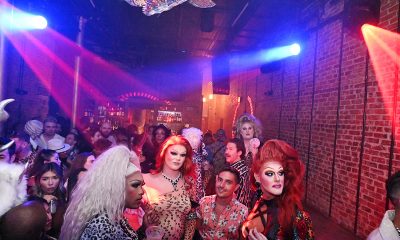Obituary
Remembering Rauhofer
Gay music legend noted for remixes, production and innovation
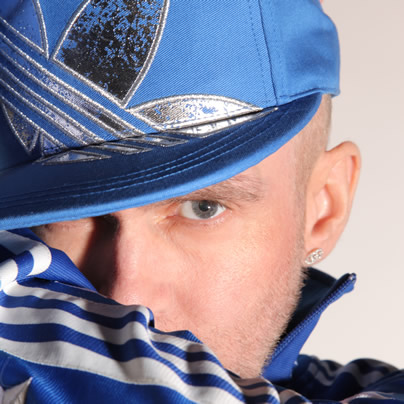
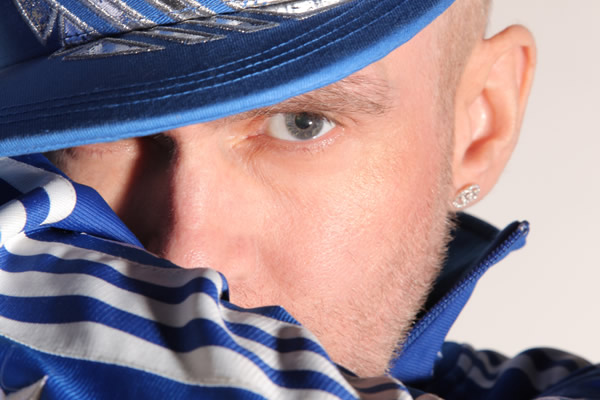
Peter Rauhofer died last week in New York. Gay music lovers say he’ll be remembered for his unyielding work ethic and boundless creativity. (Photos courtesy Angelo Russo)
Angelo Russo knew something was wrong in March when several days went by without hearing back from his friend and client, legendary producer/DJ/remixer Peter Rauhofer.
“We sometimes talked five or six times a day so when I didn’t hear back from him, yeah, it sent up the red flags,” Russo says. “The only time I didn’t hear from him was if we were fighting and of course we fought. The closer you are, the more you fight with someone. But yeah, back in March, we were fine. I was speaking to him one day, then a couple days went by and eventually we had 911 break into his apartment.”
Russo says Rauhofer, whom he’d met at a music conference in 2000 and had managed since 2006, was “barely conscious” having suffered a seizure. Hospitalized at St. Luke’s-Roosevelt Hospital Center in New York, the prognosis was grim. Rauhofer, who was gay, had a malignant brain tumor that had gone undiagnosed long enough to have grown significantly. Russo (also gay) says doctors said its position on the brain made it inoperable. They tried a round of chemotherapy that was unsuccessful. On April 29, Rauhofer turned 48 in the hospital. He died May 7.
Russo says it may have been a bit of a blessing in disguise. Had the Grammy-winning music legend, who remixed hits for Cher (“Believe”), Madonna (“Nothing Fails,” “4 Minutes” et. al.), Janet Jackson (“Throb”), Britney Spears (“Toxic”) and scores of other artists, responded well to chemo, it may have left him with diminished mental faculties.
http://www.youtube.com/watch?v=2V4paTlgYLM
“There was a possibility at one point that if it had worked, he may only have had the mental capacity of a 5 year old,” Russo says. “He would have been so unhappy but how can you tell his mom not to try. So they tried but it didn’t work. … When they came back and said there was nothing more they could do, I was hoping he wouldn’t have to lay there and suffer too long. He was not about suffering. He was about being able to be happy and bring joy to people. That’s what his career was all about — parties and music. If he wasn’t able to do that, then I’m happy it didn’t go another route.”
Rauhofer’s mother Helga, who visited from their native Austria for her son’s final days, is executrix of his estate. He will be interred in Austria. A candlelight vigil was held last weekend in Miami. A public memorial is planned for New York Pride next month. Friends in New York are also planning a private memorial service there, where he’d lived since about 1996. Check Rauhofer’s Facebook page for details on public events.
The gay club/music world responded with shock and sadness at Rauhofer’s untimely death.
“I don’t use this term loosely, but he was a musical genius,” says gay DJ/remixer Joe Gauthreaux. “He never got stuck in one sound and stayed there, that’s why his mixes always resonated. He was always doing something different and trying to grow. He never did the same remix twice. He was always trying different sounds. There really was nobody like him.”
Gauthreax also says he “was a huge Peter fan, huge.”
“He was one of the remixers that, from a DJ standpoint, I would always be so excited about. It was usually his mix that was quote-unquote the one. So from that standpoint, this is very hard to take just knowing that there’s not going to ever be another Peter Rauhofer mix to come in and save the day.”
Tori Amos, who had a No. 1 Billboard dance hit in February with Rauhofer’s remix of her song “Flavor,” said in a statement that “he truly captured the spirit of the song” and that she’ll “always hold a very special place in my heart for Peter.”
Local gay nightclub impresario Ed Bailey, who hosted Rauhofer twice at Velvet Nation in the early ‘00s, says Rauhofer’s work epitomized the era.
“His music, his production and his remixes, were kind of not exclusively but almost like the overwhelming soundtrack of the big clubs and circuit parties for the whole decade from about 2000 to 2010,” Bailey says. “He’s widely revered as that amazing one of all the amazing people who helped shape an entire kind of era in club land that for most people, they feel it was one of the best eras ever. We were very proud to be able to have him at Nation and I remember just being mesmerized by his set.”
Gay DJ Hector Fonseca met Rauhofer in 1998, joined Star 69 in 2001 and worked with Rauhofer for eight years releasing about 20 remixes and three albums. Fonseca, traveling this week in Europe, says by e-mail he and Rauhofer developed a strong working relationship and friendship.
“Besides his strong work ethic and extreme attention to detail, what made him stand out was that he was always pushing the sound in the gay scene with elements from the European trance and electro scene,” Fonseca says. “Very few, if any, were doing that and still to this day, it’s quite unique.”
Fonseca says Rauhofer will be “remembered as a visionary from a great era in New York City.”
“We were really the epicenter of house,” he says. “Now most cutting edge stuff is coming from Amsterdam, but if you take a closer look into that music, you can hear the influence from DJs of that time here in New York and Peter was a big part of that. The Twilo and Roxy days when you really had to push the sound to stand out. He will be missed by many but remembered through his music.”
During a lengthy phone interview this week, Russo, who started as an intern at Rauhofer’s Star 69 label in 2001, shares several memories of their years working together.
Russo says Rauhofer:
- had been in apparently good health prior to the March seizure. He says he doesn’t know of Rauhofer ignoring any warning signs earlier though he admits Rauhofer was usually “not one to go to the doctor.” “He hadn’t complained of headaches or anything,” Russo says. “This kind of blindsided me.”
- was in and out of consciousness in his final days. He was able to squeeze hands of those by his bedside at times. “We don’t know how much he heard, but we gave him an earful.” And although sad, Russo says it was a joy to share with Rauhofer’s mother details of his life in New York, of which she’d previously known little.
- was a workaholic who “would obsess over his mixes” and would often stay up working all night to finish them.
- loved to collect toy metal robots and Gucci jewelry.
- kept his Grammy for Cher’s “Believe” in his Star 69 office until it closed in the summer of 2010 after which he kept it on a shelf in the living room of his 42nd Street apartment in Manhattan.
- dated at various times and had some semi-long term boyfriends, but made it clear work came first for him. “A lot of people just don’t have the patience for that,” Russo says. Rauhofer had not been dating in recent months, Russo says.
- Had met many of the artists whose hits he remixed. Although most of the remixing work was done without the artist, Russo remembers Rauhofer meeting Madonna, for instance, on multiple occasions. He says Rauhofer wasn’t especially star struck in general though he had an obsession with Grace Jones and “always wanted to work with her but never got the chance.” “If she had walked in the room, he might have gasped,” Russo says.
Rumors that Rauhofer could be tough — Bailey says, “I don’t think it’s a secret in the industry that he had a reputation for being difficult to work with” — were mostly a matter of Rauhofer’s being, “never a diva, but a perfectionist,” as Russo puts it.
“There were tiny spats about things,” Russo says. “He hated it when some A&R (artist and repertoire) person would be bugging for a mix, say they just wanted to sample it to see where he was going with it, then they’d start promoting his unfinished mixes, he hated that. But most of the time, believe it or not, he was pretty easygoing. When you pushed him, yeah, he would let you have it. … He would scream when he felt like he’d been wronged, but he’d worked really hard for what he achieved and he expected to be respected for that.”
Bailey says although Rauhofer excelled at mixing, spinning and producing, it’s his DJ sets for which he’ll most be remembered among the general public.
“It’s inevitable that the mixes will sound dated over time but the memories people experienced of him spinning live will live on,” Bailey says. “They’ll never be tarnished because they’re not something you can listen to over and over.”
Russo says Rauhofer’s ability to transcend genres is an important part of understanding his legacy.
“His whole idea about music, whether it was one remix or a whole DJ set, was that it should be a journey,” he says. “Toward the end of the ‘90s, I think it started to be very segregated in a way. You had this mix for the straight crowd, and this mix for the circuit crowd but there was no style he couldn’t do. He could remix for any audience. I like to reference this latest thing he just did for Tori. There were three different mixes and another that wasn’t released and you could really listen to them all back to back because they were so different. He was able to do it all.”
District of Columbia
Acclaimed bisexual activist, author Loraine Hutchins dies at 77
Lifelong D.C.-area resident was LGBTQ rights advocate, sex educator
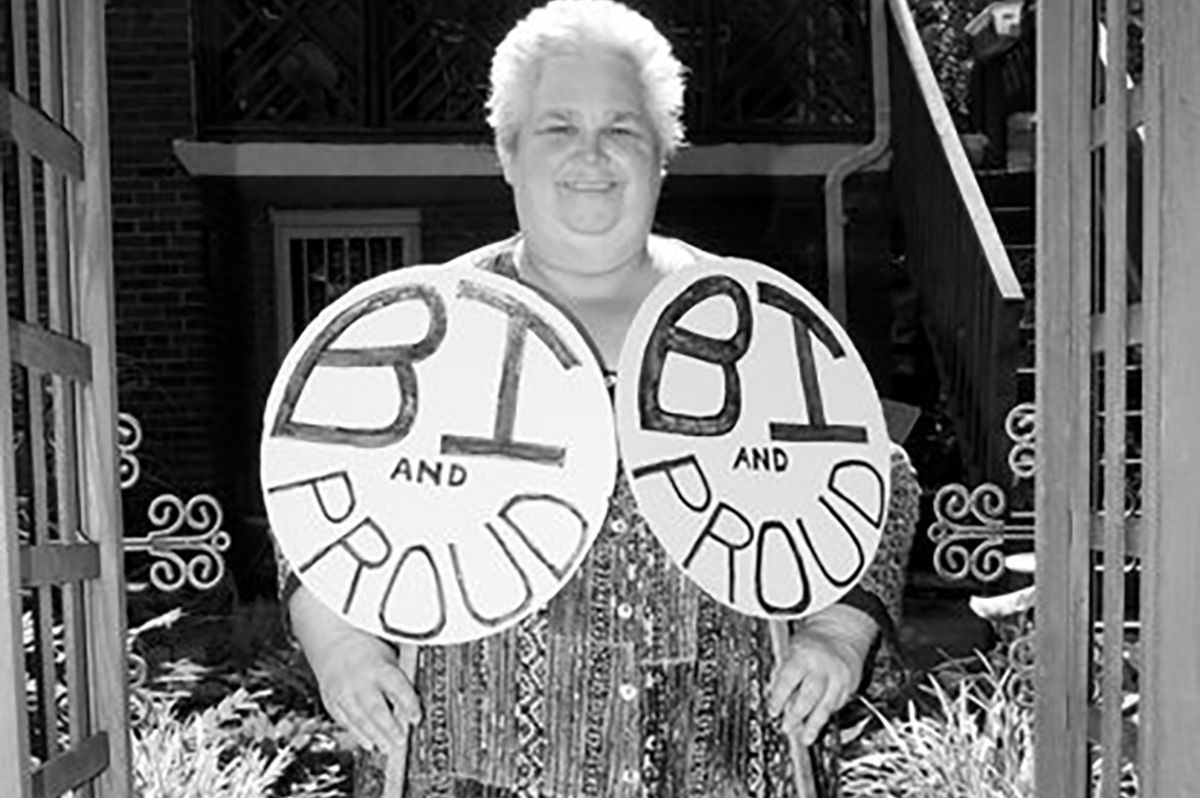
Loraine Adele Hutchins, a nationally known and acclaimed advocate for bisexual and LGBTQ rights, co-author and editor of a groundbreaking book on bisexuality, and who taught courses in sexuality, and women’s and LGBTQ studies at a community college in Maryland, died Nov. 19 from complications related to cancer. She was 77.
Hutchins, who told the Washington Blade in a 2023 interview that she self-identified as a bisexual woman, is credited with playing a lead role in advocating for the rights of bisexual people on a local, state, and national level as well as with LGBTQ organizations, many of which bi activists have said were ignoring the needs of the bi community up until recent years.
“Throughout her life, Loraine dedicated herself to working and speaking for those who might not be otherwise heard,” her sister, Rebecca Hutchins, said in a family write-up on Loraine Hutchins’s life and career.
Born in Washington, D.C., and raised in Takoma Park, Md., Rebecca Hutchins said her sister embraced their parents’ involvement in the U.S. civil rights movement.
“She was a child of the ‘60s and proudly recalls attending Martin Luther King’s ‘I Have a Dream’ speech with her mother on the D.C. Mall,” she says in her write-up. “She was steeped in the civil rights movement, was a member of the Student Non-Violent Coordinating Committee, and was proud to say she had an FBI record.”
The write-up says Hutchins received a bachelor’s degree from Shimer College in Mount Carroll, Ill. in 1970, and a Ph.D. in 2001 from Union Institute. It says she was also a graduate of the Institute for the Advanced Study of Human Sexuality’s Sexological Bodyworkers certification training program.
The family write-up says in the 1970s Hutchins became involved with efforts to assist tenants, including immigrant tenants, in affordable housing programs in D.C.’s Adams Morgan neighborhood.
“In 1991, she co-authored the groundbreaking book, ‘Bi Any Other Name: Bisexual People SPEAK OUT’ with friend and colleague Lani Ka’ahumanu,” the write-up says. It notes that the acclaimed book has been republished three times and in 2007 it was published in Taiwan in Mandarin.
According to the write-up, Hutchins delivered the keynote address in June 2006 at the Ninth International Conference on Bisexuality, Gender and Sexual Diversity. In October 2009, D.C.’s Rainbow History Project honored her as one of its Community Pioneers for her activist work.
“Loraine is one of the few people who has explained, defended and championed bisexuality and made sure the “B” got into the LGBT acronym,” the Rainbow History Project says on its website in a 2009 statement. “Sensitivity to bisexual issues, civil rights, and social justice issues is Loraine’s life work,” the statement concludes.
The write-up by her sister says that up until the time of her retirement, Hutchins taught women’s and LGBT studies as well as health issues in sexuality at Montgomery Community College and Towson University in Maryland.
“She was a friend and mentor to many in the LGBTQ community,” it says. “She thoroughly enjoyed adversarial banter on the many topics she held dear: sexuality, freedom of speech, civil rights, needs and support of those with disabilities, especially in the area of mobility, assisted housing, liberal politics and many other causes,” it points out.
She retired to the Friends House community in Sandy Springs, Md., where she continued her activism, the write-up concludes.
Hutchins was among several prominent bisexual activists interviewed by the Washington Blade at the time of her retirement in June 2023 for a story on the status of the bisexual rights movement. She noted that, among other things, in her role as co-founder the organizations BiNet USA and the Alliance of Multicultural Bisexuals, she joined her bi colleagues in prodding national LGBTQ advocacy organizations to improve their advocacy work for bisexuals, which Hutchins said had been inadequate in the past but had been improving in recent years.
Hutchins is survived by her sister, Rebecca Hutchins; her husband, Dave Lohman; nephew, Corey Lohman and his wife Teah Duvall Lohman; and cousins, the family write-up says.
It says a private memorial service was scheduled for December and a public memorial service recognizing her contributions to the LGBTQ community will be held in the spring of 2026.
Obituary
Acclaimed disability rights advocate Thomas Mangrum dies at 61
Lifelong D.C. resident also served as ‘cherished’ Capital Pride volunteer
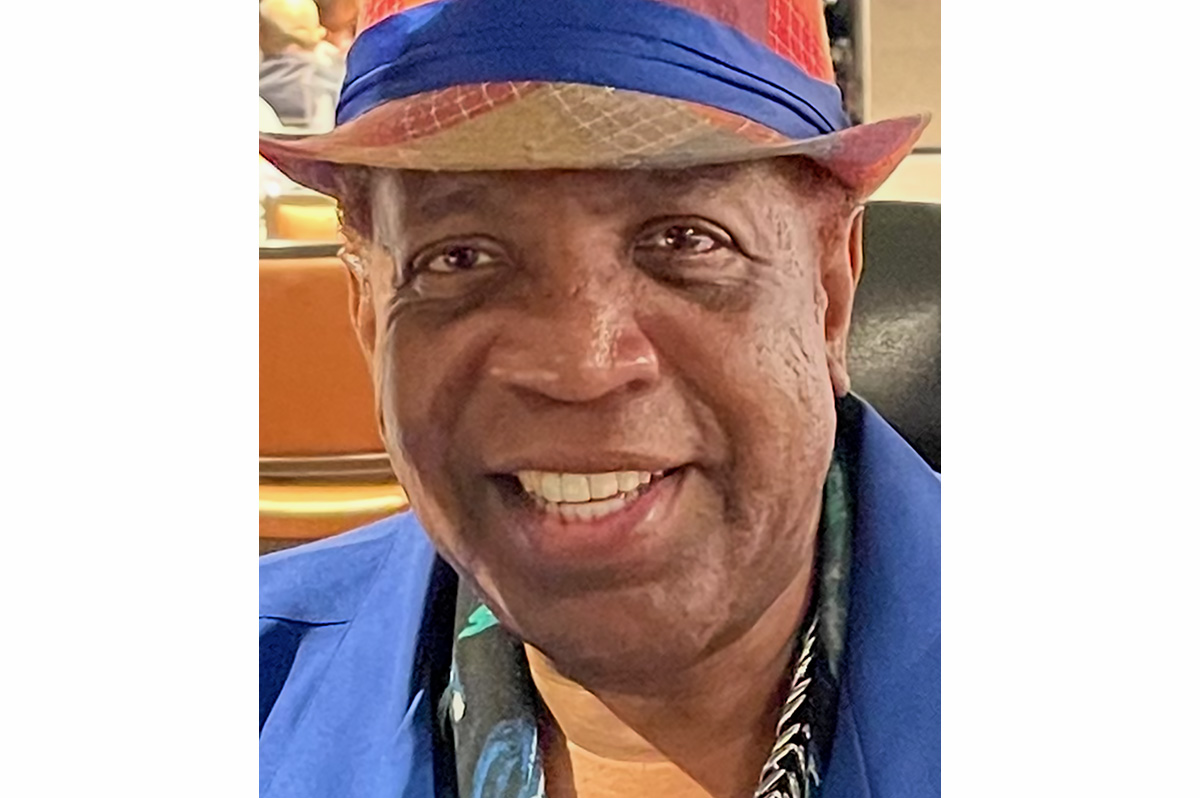
L. Thomas Magnum Jr., a lifelong D.C. resident, widely recognized and acclaimed advocate for people with disabilities, and LGBTQ rights activist involved in the city’s Capital Pride events, died Sept. 17 from complications related to stomach cancer. He was 61.
A statement released by Project ACTION!, a local disability advocacy organization for which Mangrum served for 15 years as co-president, says he worked for more than 20 years for the D.C.-based Maurice Electric Supply company before retiring in 2002 and devoting his efforts to disability-related projects and programs.
Phylis Holton, an official with the D.C. organization Quality Trust For Individuals With Disabilities and a longtime friend of Mangrum, said as a person with a developmental disability Mangrum devoted his life to supporting others with all forms of disabilities. She said that due to a separate spinal condition, Mangrum used a wheelchair for about 15 years prior to his passing.
Holton said Mangrum had a mild form of developmental disability, which the U.S. Centers for Disease Control and Prevention describes as “a group of conditions due to an impairment in physical, learning, language or behavior areas” that usually develops before a child is born during pregnancy.
Holton said Mangrum was an active member of Project ACTION! for 15 years prior to the 15 years he served as the organization’s co-president.
“He traveled nationally and presented at conferences, was featured on webinars and podcasts on a variety of topics related to self-advocacy, accessibility, equality, and more,” Holton told the Washington Blade in a statement.
“He shared his lived experience of being a Black man with a disability, and being gay, and how it impacted how he was treated in the community,” Holton said. “He was a strong advocate and co-facilitated trainings for independent advocacy organizations that Thomas supported and was a key advocate in their advocacy work,” she said.
Holton added, “He would answer a late request to train a group of attorneys, present at a meeting or testify before City Council or meet with an advocacy group to advance pending legislation that impacted people with disabilities.”
She said Mangrum also enjoyed participating in LGBTQ Pride events and last year traveled to the New York Pride events. According to Holton, he looked forward to participating in WorldPride 2025 events earlier this year in D.C. “but his illness prevented him from doing so.”
In a statement announcing Mangrum’s passing, Capital Pride Alliance, the group that organizes D.C.’s annual LGBTQ Pride events and served as the lead organizer of WorldPride 2025 in D.C., called Mangrum a “cherished volunteer” for D.C. Pride events.
June Crenshaw, the Capital Pride Alliance Deputy Director, said Mangrum served as a volunteer for D.C.’s LGBTQ Pride events “for many years” and was involved in many of the planning activities for WorldPride before his illness prevented him from participating in WorldPride earlier this year.
“He certainly in my interaction with him made me very aware of making sure that Capital Pride was thinking about accessibility always, and making sure that we had a welcoming, affirming accessible space for participants and staff with disabilities,” Crenshaw said.
In its statement on Mangrum’s career and accomplishments in life, Project ACTION! says he helped to advance the needs of people with disabilities through service on many boards and commissions. Among them were Lifeline Partnership, the D.C. Developmental Disabilities Council, the D.C. Center for Independent Living, the Washington Metropolitan Area Transportation Authority’s Accountability Advisory Committee, “and many more.”
“His leadership, passion, and unwavering commitment to equity and inclusion made a lasting impact on all who had the privilege to know and work alongside him,” the statement says.
It adds, “Thomas showed us the power of perseverance, courage, and the importance of standing together. His spirit will continue to guide us and strengthen our community for generations to come.”
A funeral for Mangrum was scheduled for Oct. 9, at D.C.’s Westminster Presbyterian Church at 400 I Street, S.W., with a viewing at 10 a.m. followed by a program at 11 a.m. A burial was scheduled to take place that same day at Heritage Memorial Cemetery at 13472 Poplar Hill Road in Waldorf, Md.
Holton said in lieu of flowers, donations may be made to Project ACTION! for a Celebration of Life and advocacy scholarship in Mangrum’s name. A date and location for the Celebration of Life for Mangrum was to be announced later, according to Project ACTION!
Obituary
Susan Xenarios, crime victim advocate, long-time LGBTQ ally, dies at 79
‘Susan was a force of nature, a mentor’
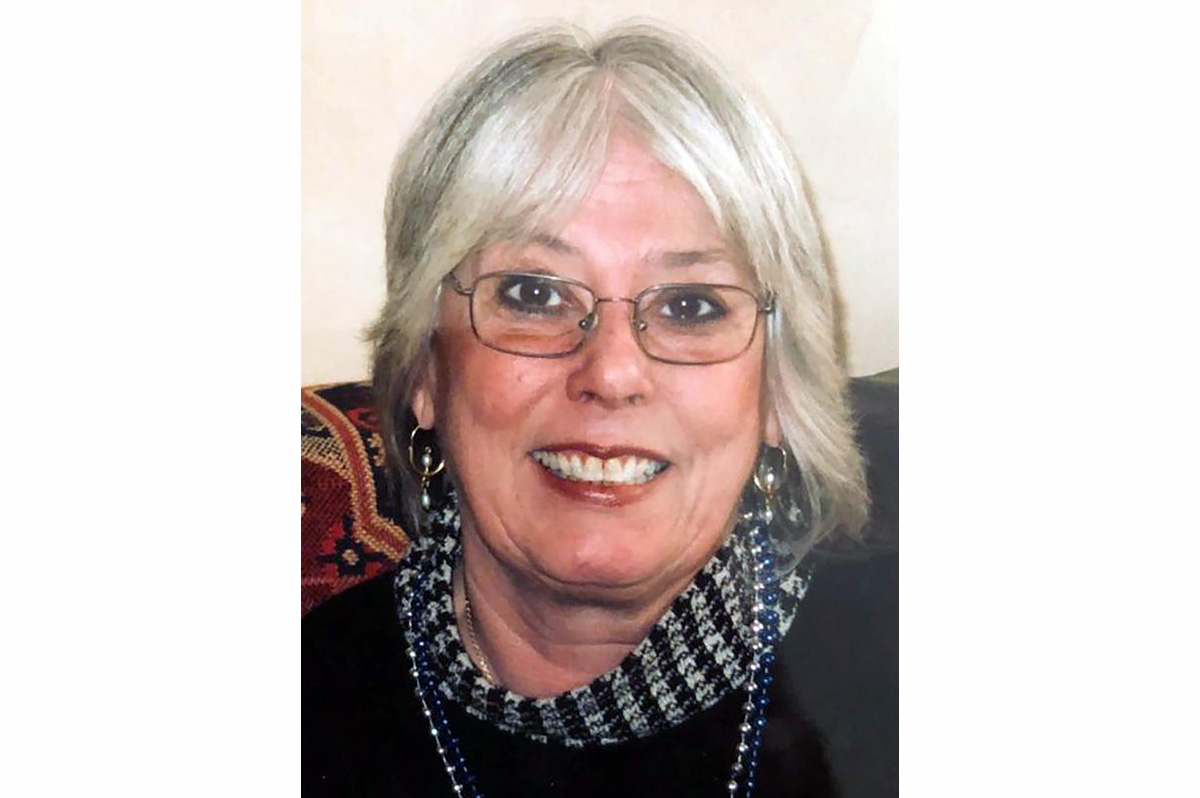
Susan Xenarios, LCSW, a visionary and dynamic leader of New York’s crime victim movement for 50 years and a courageous ally of the LGBTQ community, died on Sept. 6 in Manhattan. She was 79.
In 1974, an assailant held a knife to Ms. Xenarios’s throat and raped her on a rooftop in Upper Manhattan. At a time when few sexual assault victims spoke out, she began a lifelong, public campaign to improve the care and treatment of survivors and to reform laws and police procedures. Along with her high-profile advocacy, she never stopped counseling individual survivors of crime, pioneering breakthrough therapeutic interventions.
Ms. Xenarios led the creation of New York’s first program to provide assistance to survivors of sexual assault, the state’s first clinical program for male survivors, and the New York Sexual Assault Forensic Examiner (SAFE) Program, which ensures survivor-centered emergency room protocols, including evidence collection. She served as executive director of the Crime Victims Treatment Center in New York City for 40 years (1977 -2017).
Ms. Xenarios also was a driving force behind several state laws to advance the rights of crime survivors, including a 1993 law protecting the confidentiality of rape crisis center communications, the Hate Crimes Act 2000, which included enhanced penalties for hate-motivated crimes, including anti-LGBTQ assaults, and the 2015 “Enough is Enough” law, one of the first laws in the nation to require all colleges to adopt a set of comprehensive procedures for addressing sexual violence on campuses.
“Susan was a force of nature, a mentor, an extraordinary ally to the LGBT community, and a dear friend,” said Bea Hanson, director of the New York State Office of Victim Services, principal deputy director of the federal Office on Violence Against Women during President Barack Obama’s administration (2011-2017), and director of client services of the New York City Gay and Lesbian Anti-Violence Project (1991-1997). “She was a leader in advocating for the rights of sexual assault survivors and all crime victims. She spoke truth to power with a smile on her face and love in her heart. She will be missed.”
“Susan was the greatest champion and friend of LGBT victims of crime there ever was or ever will be,” said Matt Foreman, former executive director of the NYC Gay and Lesbian Anti-Violence Project (1990-1996) and the Empire State Pride Agenda (1996-2003). “She was one of the first to recognize the prevalence of sexual assault against men and she created the first program to help male survivors. When there was enormous pressure to pass a hate crimes law that did not include anti-LGBT offenses, she made sure the larger movement did not abandon us. She understood the harmful effects of having terms like ‘sodomy’ and ‘deviate sexual intercourse’ in New York State law and led the successful drive to purge them from the books. She was so genuinely warm and supportive, I was shocked when I learned that she wasn’t a lesbian.”
A memorial service will be held on Saturday, Sept. 20, at 11 a.m. at West End Collegiate Church, 245 W. 77th St. in Manhattan.

